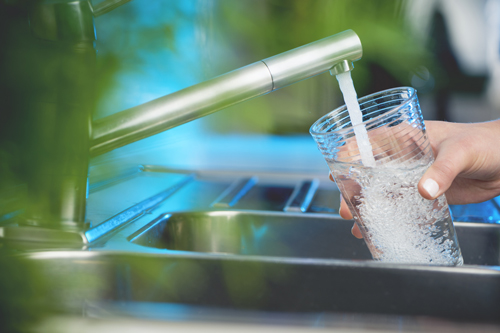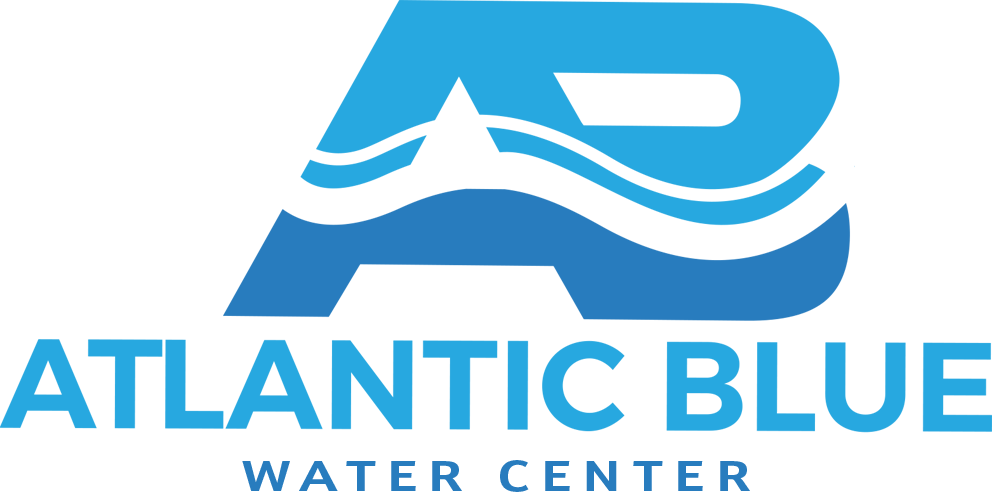Until a large water crisis, such as the lead contamination of Flint, Michigan takes place, we largely take our water quality for granted in Maryland and across the United States. The truth is, there are tiny amounts of foreign substances in all the water we drink. In the smallest concentrations, these substances don’t pose major health risks, but it’s still worth knowing for certain that your drinking water doesn’t contain an unsafe amount of one of these water contaminants.
The Four Categories of Water Contaminants
- Chemical contaminants are simply chemical elements or compounds of multiple elements that enter our water supply. They can be naturally occurring or manmade, and include substances such as metal, pesticides, nitrogen, bleach, and even drugs/ prescriptions.
- Physical contaminants include substances like sediment and suspended organic material found in ground water. The key qualifier here is that physical contaminants usually impact the appearance of water more than other types of water contamination.
- Biological contamination takes place when organisms occupy our drinking water. Biological contaminants, or microbes, include bacteria, viruses, protozoan, and parasites.
- Radiological contaminants are elements that can emit ionizing radiation. Drinking water with radiological contaminants comes with a host of health risks, and these contaminants even have the potential to increase the radioactivity level of the air we breathe.
The Most Common Water Contaminants
Lead
Lead is one of the most well-known drinking water contaminants. That is because for many years, water pipes and plumbing fixtures were commonly constructed using lead. Unfortunately, leaching and corrosion can wear down lead piping over the years, allowing traces of lead to travel through our pipes along with the water we drink. Over a sustained period of time, lead contamination can lead to several adverse health effects. Many people assume that their water is safe from lead contamination since their home isn’t overwhelmingly old. Lead piping was only banned in 1986, however, and all previously placed lead piping was allowed to stay in place. It is estimated that between 15 and 22 million Americans still use tap water that enters their homes through lead pipes.
Atrazine
Atrazine is a widely used herbicide across the United States. While it effectively controls weeds amongst crops, it can spell problems if it manages to leach into our water supply. Atrazine is currently being studied as a potential endocrine disruptor and carcinogen.
Pathogens
If a water treatment system isn’t fully fit to eliminate pathogens, they are sure to find their way into our water supply. That means that our home’s water could potentially harbor parasites, bacteria and viruses. Historically, this has created major issues. In 1993, Milwaukee became of the site of a massive cryptosporidiosis outbreak, the largest epidemic involving a waterborne disease in U.S. history.
Chlorine
Chlorine itself is used at water treatment facilities to purify water every day. The byproducts of this disinfection process, like trihalomethanes and haloacetic acids, can lead to increased risk of cancer and reproductive issues.
Arsenic
Of all the contaminants that could potentially be found in our water supply, arsenic is the chemical most strongly tied to cancer. After an update in 2000 to the previously archaic water purification standards of 1960, arsenic levels have vastly dropped across the United States. Even still, it’s absolutely worth knowing whether your water supply contains this dangerous chemical.
Nitrates
Nitrogen is a fundamental requirement for life on earth, but it can become dangerous in high quantities. When nitrogen used in fertilizers leaches into our water supply, it introduces major health risks for infants and pregnant women.
Radon
Many of the radioactive contaminants found in water, such as radon and radium, are actually completely naturally occurring. Other times, they are the product of energy usage and medicinal waste. In any case, exposure to an unhealthy amount of radioactive contaminants can lead to respiratory issues or even cancer.

What Can You Do About Water Contamination?
If you suspect your water supply may be contaminated, a great first step would be to check out our Problem Solution Center. Based on a provided description of the feeling, taste, smell and appearance of your water, we can help you determine whether your water may be contaminated, and what you can do to resolve the issue.
Bear in mind that our Problem Solution Center is a great resource for general recommendations regarding your water quality. For more concrete advice, we would recommend a visit to our Westminster, Maryland location for free water testing. After our water test and in-depth analysis, we provide a comprehensive report detailing the contents of your water. If any abnormalities are detected, you will receive customized solutions for your particular water problem.
The Water Test You Can Trust
While many Westminster, MD water businesses claim to provide accurate water testing, these tests are often performed by unqualified salesmen. When you entrust Atlantic Blue with your water, you can rest easy knowing a specially trained and certified technician is testing your water. Our intensive water testing methods, cutting-edge equipment, and knowledgeable personnel are fully certified by the Environmental Protection Agency (EPA). If there are contaminants in your water, we will inform you of their presence, gauge the potability and safety of your water, and provide you with invaluable peace of mind.
To learn more information about our full-service laboratory or to schedule an in-home water test, call (410) 751-9200 today.
Make Sure That Your Home Water Supply Is Safe to Drink with Atlantic Blue Water Center
We provide water treatment and water softening solutions for homeowners that want a cleaner water supply and water that is free from hazardous carcinogens that can contribute to increased cancer risk. We’re also focused on providing additional education on water treatment, water quality, and issues associated with water contaminants. Call us at (410) 751-9200 to schedule your in-home water testing appointment today.
